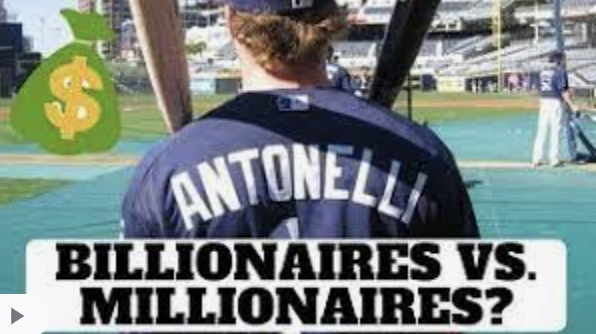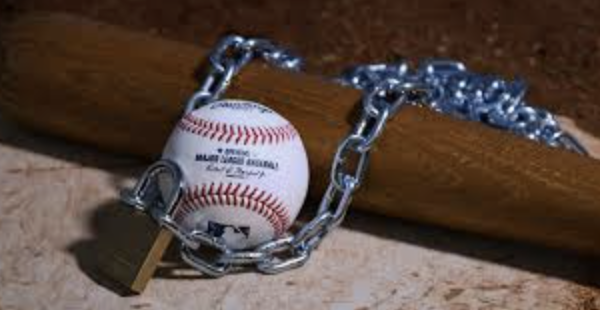“This baseball thing is just a battle between billionaires and millionaires.”
No, it isn’t.
Actually there are few things more annoying than hearing people say this, because it’s playing right into the hands of the people who have all the power.
For lack of a better term, let’s call them the billionaires.
Not all team owners are billionaires, but a pretty small percentage of professional baseball players are really millionaires.
First off, roughly one of every 200 seniors on high school baseball teams is drafted to play professional baseball. If you think about that, an eight-team league with 25 players per team will have just one player — the best player in the league — get drafted at all.
Not bad, you say.
Getting picked in the baseball draft isn’t like in other sports. NBA and NFL choices are far more likely to play at the highest level for high salaries. All baseball draftees start in the minor leagues, and the vast majority get very little money at the beginning of their careers.
When I was covering the Class A South Atlantic League in 1982 and 1983, I learned a lot about the lives minor leaguers live. As a “low-A” league, the SAL was four levels below the majors. I was told by the managers in ’82 and ’83 that if two players from a Class A team eventually made it to The Show, that would be a success.
The little secret is that most of the players drafted, indeed most of them playing in the minor leagues, have no hope of ever going any further. They’re only there to fill out lineups so that those who do have potential can play.
When I was covering the California League in 1994 and ’95, one of the players I covered not only made it to the big leagues, he became a star. Derrek Lee played in the majors for 15 years, hit 331 home runs, earned a World Series ring and finished in the top 10 in MVP voting twice.
He earned more than $90 million playing baseball, an exception who proved the rule.
But most of his teammates in the minors earned $1,100 a month during the four and a half months of the baseball season.
That’s about $5,000 a year.

Millionaires vs. billionaires?
Hardly. Most of the people who play professional baseball — minor leaguers — work for less than minimum wage.
And owners of major league teams are at no risk of losing money. Anyone who isn’t doing well can sell their team for a massive profit.
For the first 75 years of big league baseball, owners didn’t just have the upper hand. They had almost as much power over their employees as 19th century plantation owners had over their slaves. If a team signed a player, the only way that player could get away and play for another team is if his first team let him go.
In the early 1960s, the minimum salary for a major leaguer was less than $10,000 a year. Only a few superstars had an income of $100,000 or above. If salaries seem ridiculous now compared to then — a minimum above half a million — a large part of it is that once the pendulum swung, the players were every bit as capable as overdoing it as the owners had been in the old days.
It also matters that every one of the 30 team owners could be replaced by other rich people without fans even noticing, but if all the 1,200 players on 40-man rosters were replaced by 1,200 different players, the game would suffer tremendously.
Yet the owners, like so many other rich people in America, have very exalted opinions of themselves.
They think they matter.
They don’t.
Sadly, it’s too much to ask for owners to get out of the way, be fair to the players and just let them play ball. That isn’t the way rich people are in this country.
If only it could be.

